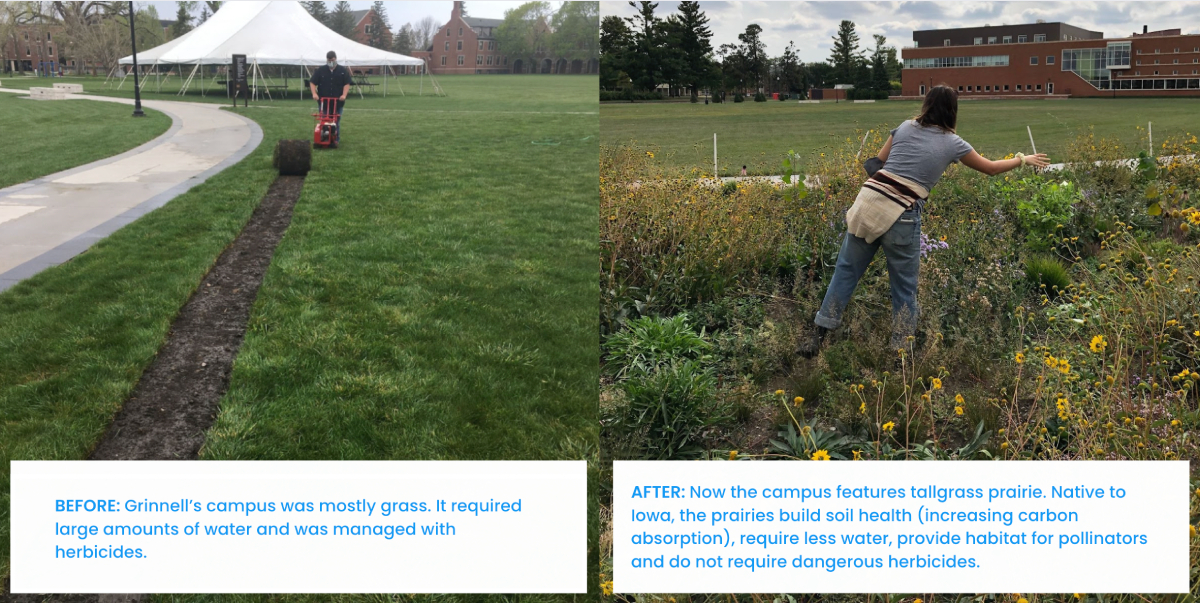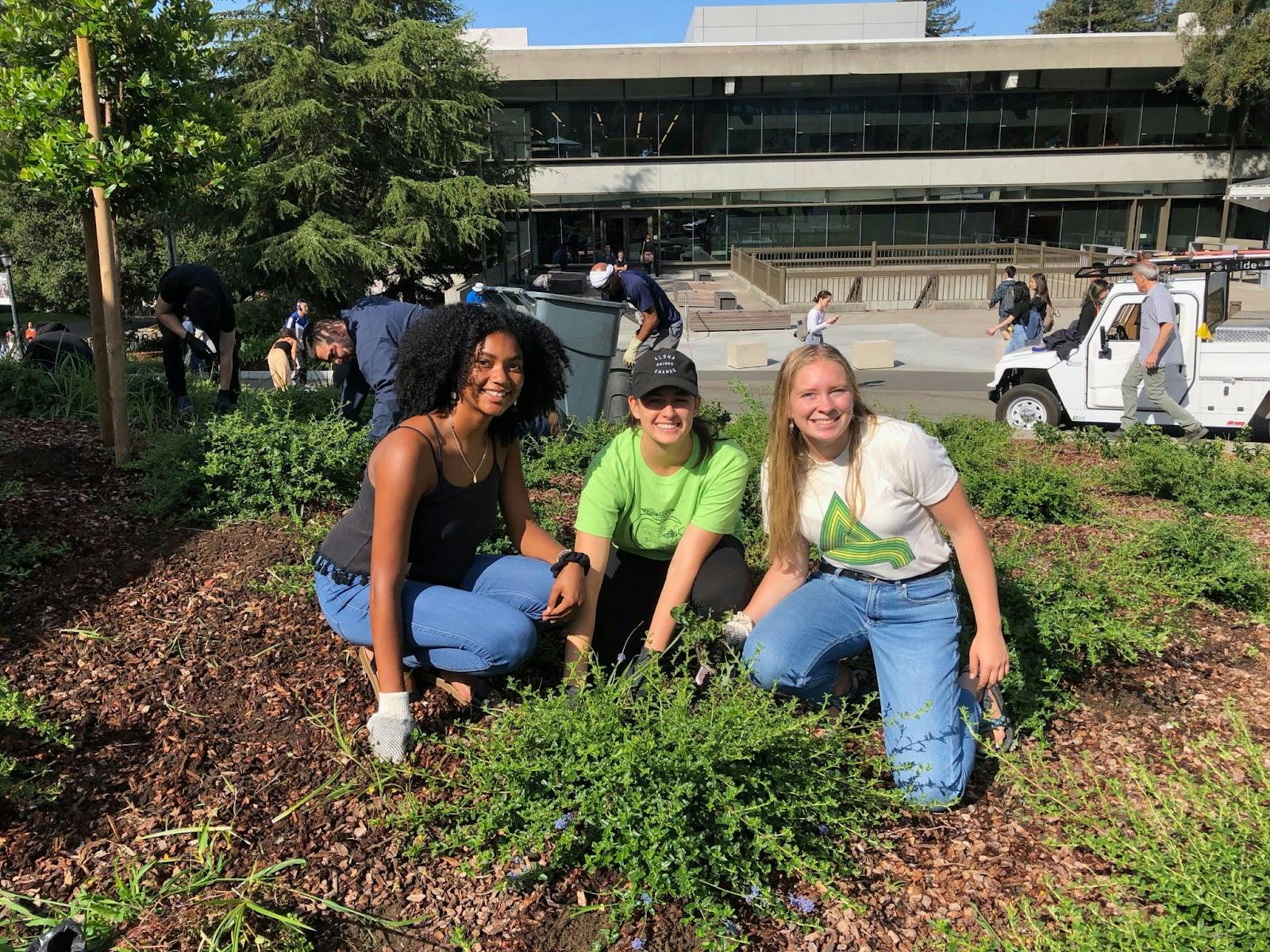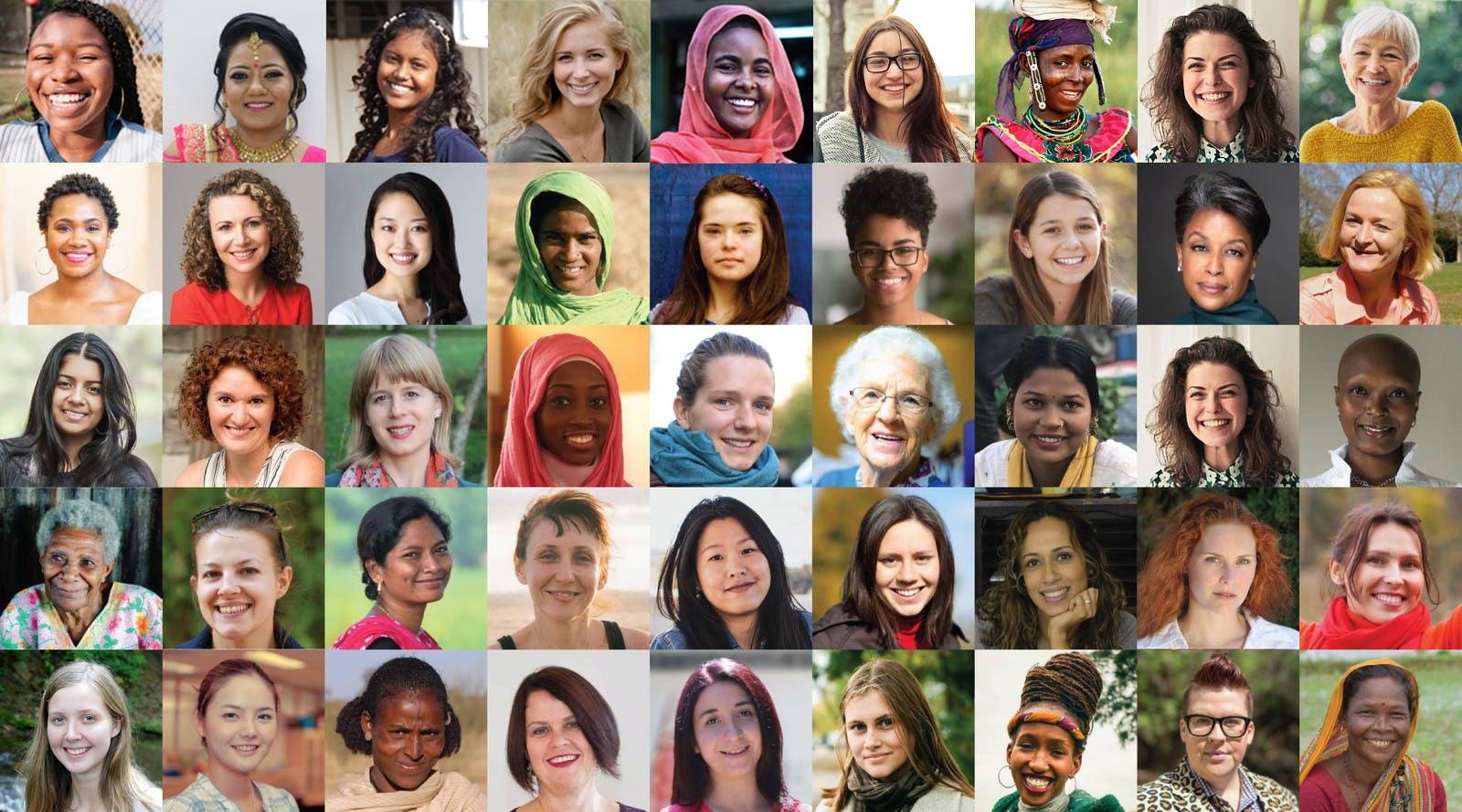Mackenzie Feldman: Eliminating Herbicides One Campus at a Time
.png)
Mackenzie Feldman was about to play beach volleyball when her coach issued a warning that would shock her into action.
The coach told the team not to chase any balls that rolled off the court as the groundskeepers had just sprayed the grass with an herbicide.
“Why would they use such dangerous chemicals where we were practicing?” she recalls asking her coach at the University of California, Berkeley.
It was the kind of question that would lead her to launch the largest effort ever to rid college campuses of herbicides. But on that day in the Spring of 2017, she was focused on one patch of grass.
“I wanted the herbicides out of there,” said Mackenzie.
Armed with a backpack full of studies, she went to the groundskeeper and asked if he would stop spraying near the volleyball courts. His answer surprised her. He promised to stop spraying as long as Mackenzie and her teammates would help him pull weeds.
“It was a really important moment for me. I realized that maybe some of these issues are not as hard to solve as we think,” Mackenzie said.
It was also the first time she felt like a “true activist.”

Mackenzie Feldman is the 26-year-old leader of Herbicide-Free Campus (Now known as Re:wild Your Campus), the nation’s largest effort ever to rid campuses of herbicides.
The Hawai’i Effect
Growing up in Hawai’i, Mackenzie was deeply moved by the battle to stop herbicide testing on the islands. In what made some Hawaiians feel like “lab rats,” agrochemical companies were using the islands to test a cocktail of toxic pesticides, 17 times the amount used on the mainland.
“When you grow up on an island you realize that resources are finite. Once you destroy them, there really is nowhere to go,” she said. “I think we need to start thinking about the whole planet this way.”
Words like “glyphosate” became part of her vocabulary. She debated the issue with friends. At a state fair, she and her mother even videotaped a chemical company representative saying that the controversial herbicide, Roundup, was “safer than apple cider vinegar.” She called this her “learning period.”
By the time her coach warned her about the herbicides near the volleyball courts, she was ready to act.
“I guess I’d had enough,” she said.
She wasn’t alone. Bridget Gustafason, another player on her volleyball team, wanted to do something too. Bridget had witnessed the heavy use of herbicides in the fields near her Midwest home and was aware of their dangers.
“We’d had different experiences but we both understood the dangers of herbicides,” Mackenzie said.
The two would go on to create Herbicide-Free Campus, which works to eliminate herbicides from college campuses while “rewilding” the landscape with native plants and better soil that actually absorbs the carbon contributing to climate change.
The Dangers of Pesticides & Fertilizers
Not only have pesticides been linked to human health issues, they also contribute to climate change by preventing soil from absorbing the carbon in the air that’s fueling climate change. Synthetic fertilizers - also eliminated during rewilding - can cause algal blooms and dead zones when they reach lakes and oceans. Note: Pesticides includes chemicals used to kill insects (insecticides), weeds (herbicides), and fungi (fungicides).
Now for the Hard Work
Expanding from the volleyball courts to the rest of the campus would take more than a few friends pulling weeds. She would need to get buy-in from the campus ground manager. He was interested but wasn’t sure how else to manage the acres of campus grounds.
“I was demanding immediate action without giving him the tools he needed,” she said.
So she found them.
She spoke with faculty advisors, wrote articles for the school newspaper, and created an official campus group with her teammate Bridget. Together, they attracted grants; located an organic horticulturist to train the groundskeepers; and recruited more students, even getting them class credit for weeding and planting.
Five years later…
- The Berkeley campus is 95% organic.
- The entire University of California system (10 schools with nearly 300,000 students). banned glyphosate, a chemical in herbicides linked to cancer.
- Brandeis, Emory, Princeton, University of Michigan, Sarah Lawrence, LMU, Grinnell and many other colleges have also launched campaigns.
So many successes can make it sound easy. Not exactly.
Along the way, Mackenzie faced resistant groundskeepers, funding woes, apathetic administrators, and even her own burnout.
Inspiration at the Courthouse
After graduating in 2018, she wasn’t even planning to continue the campaign beyond Berkeley. “I just thought it would end there,” she said.
Unsure of her next step, Mackenzie attended the trial of Dewayne “Lee'' Johnson, a former groundskeeper with cancer suing herbicide giant Monsanto. In what is considered a landmark decision, the jury ruled that Lee developed non-Hodgkin’s lymphoma after years of applying glyphosate-based herbicides, such as Ranger Pro.
It was an incredible victory but it had been a hard trial to watch, given Lee’s illness.
Mackenzie often found herself tearing up. One day at the trial, she wrote Lee a note, telling him how inspired she was by what he was doing. After the trial, Lee emailed her asking how he could get involved with her efforts. The two met and became friends.
“He wanted to do more to make change and I had an idea,” Mackenzie said.
She invited him to come to Hawaii to speak to the state officials. She hoped his moving story would sway people and it did. Quickly.
The day after Lee spoke to the State Board of Education, they banned herbicides at every public school in Hawaii. “The effect he had was incredible,” she said.
Inspired by Lee, Mackenzie decided she would try to take Herbicide-Free Campus beyond UC Berkeley to other colleges.
“If I could prevent one more person from getting cancer, it was worth it,” she said.
Before and After Photos of the Grinnell Project

Lessons from a Young Activist
Five years after launching her first herbicide-free initiative at Berkley, Mackenzie shares what she has learned.
° The Dangers of Pesticides & Fertilizers
Not only have pesticides been linked to human health issues, they also contribute to climate change by preventing soil from absorbing the carbon in the air that’s fueling climate change. Synthetic fertilizers - also eliminated during rewilding - can cause algal blooms and dead zones when they reach lakes and oceans. Note: Pesticides includes chemicals used to kill insects (insecticides), weeds (herbicides), and fungi (fungicides).
° Don’t Reinvent the Wheel: “If you can find a group already doing what you want to do, you should join their efforts,” she said. Not only will it save time and money, it will strengthen the environmental movement. “We would be much stronger if we were united under just a few organizations,” she said. Just recently, Mackenzie was able to do just that - joining forces with Re:wild.
° Never Assume People are Against You: The first few times she reached out to one of Berkeley’s grounds managers, she sent strongly worded emails packed with data. She didn’t get any response. She changed tact and sent a brief email thanking him for his efforts and asking if he would chat over coffee. He responded immediately.
° Motivate People By Helping them Find their own Personal Connection to the Issue: “This can’t be something people do because I care about it. They have to care about it too,” she said. That starts with helping people find their personal connection to the issue. With herbicides, that can be a concern for bees or children or health. This will be key to getting more people involved with the environmental movement.

Source: Herbicide-Free Campus (Now Re:wild Your Campus)
This graphic illustrates the many different reasons why someone might want to get involved with Herbicide-Free Campus. Helping people find their personal motivation is key to getting people to join and stick with environmental efforts.


.jpg?auto=compress%2Cformat)

